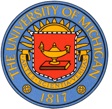JSTOR, short for Journal Storage, is a digital library founded in 1995. Originally containing digitized back issues of academic journals, it now also includes books and primary sources, and current issues of journals. It provides full-text searches of almost 2,000 journals. More than 8,000 institutions in more than 160 countries have access to JSTOR; most access is by subscription, but some older public domain content is freely available to anyone, and in 2012 JSTOR launched a program providing limited no-cost access to old articles for individual scholars and researchers who register.
JSTOR's founder was William G. Bowen, the president of Princeton University from 1972 to 1988. JSTOR was originally conceived to be a solution to one of the problems faced by libraries, especially research and university libraries, due to the increasing number of academic journals in existence. Most libraries found it prohibitively expensive in terms of cost and space to maintain a comprehensive collection of journals. By digitizing many journal titles, JSTOR allowed libraries to outsource the storage of these journals with the confidence that they would remain available for the long term. Online access and full-text search ability improved access dramatically.
JSTOR was initiated in 1995 at seven different library sites, and originally encompassed ten economics and history journals. JSTOR access was improved based on feedback from its initial sites, and it became a fully searchable index accessible from any ordinary Web browser. Special software was put in place to make pictures and graphs clear and readable.[8]
With the success of this limited project, Bowen and Kevin Guthrie, then-president of JSTOR, were interested in expanding the number of participating journals. They met with representatives of the Royal Society of London, and an agreement was made to digitize the Philosophical Transactions of the Royal Society back to its beginning in 1665. The work of adding these volumes to JSTOR was completed by December 2000.
JSTOR was originally funded by the Andrew W. Mellon Foundation, and until January 2009, was an independent, self-sustaining not-for-profit organization with offices in New York City and Ann Arbor, Michigan. Then, JSTOR merged with Ithaka, becoming part of that organization. Ithaka is a non-profit organization founded in 2003 "dedicated to helping the academic community take full advantage of rapidly advancing information and networking technologies."
(Wikipedia: JSTOR)



